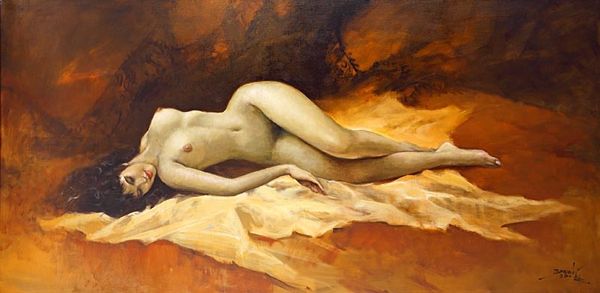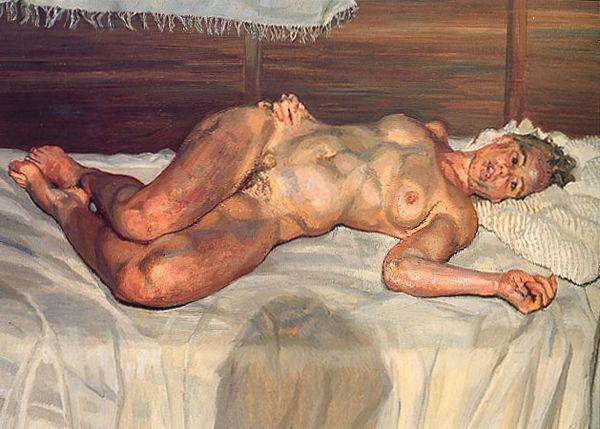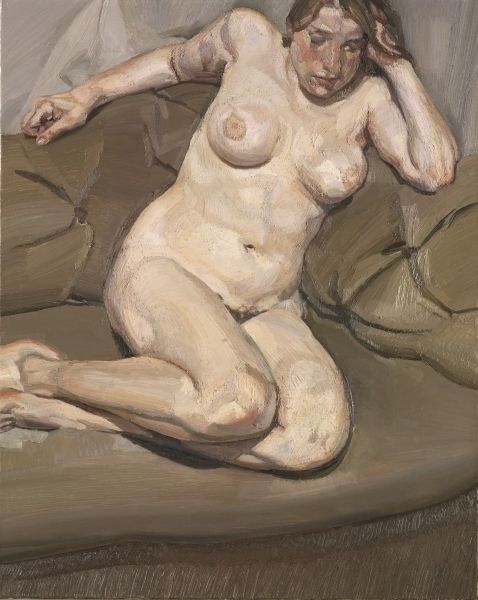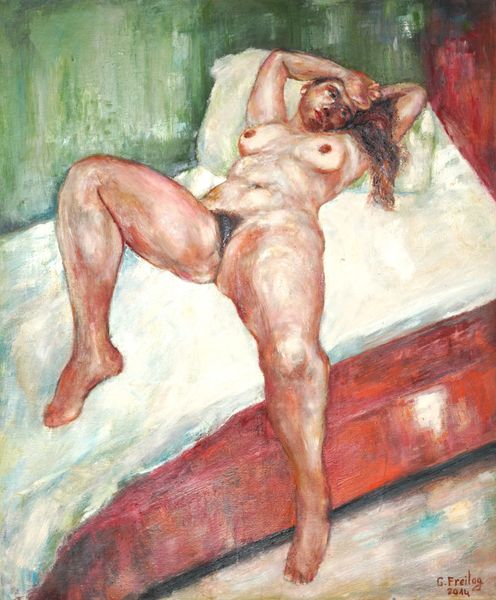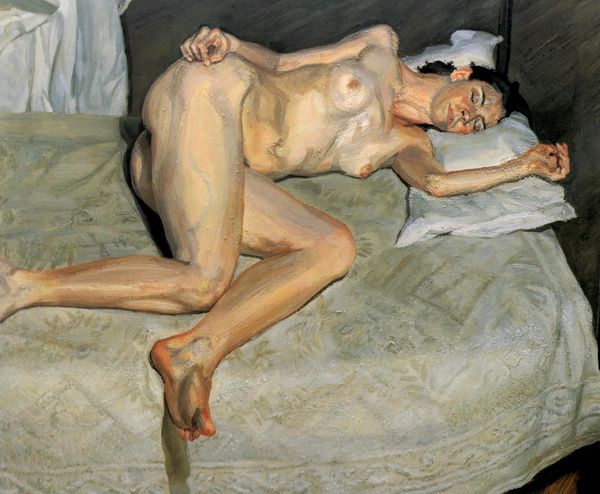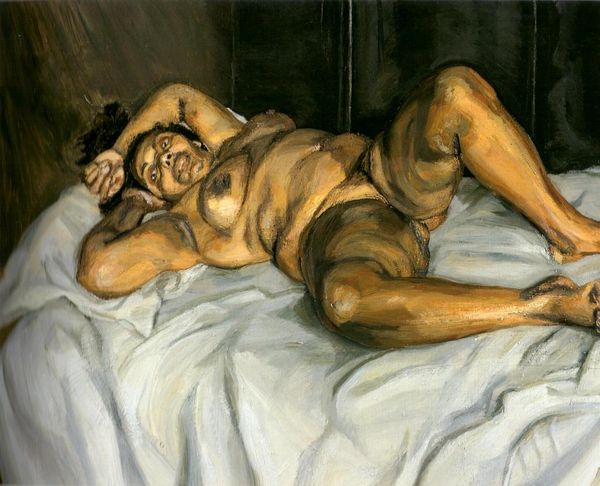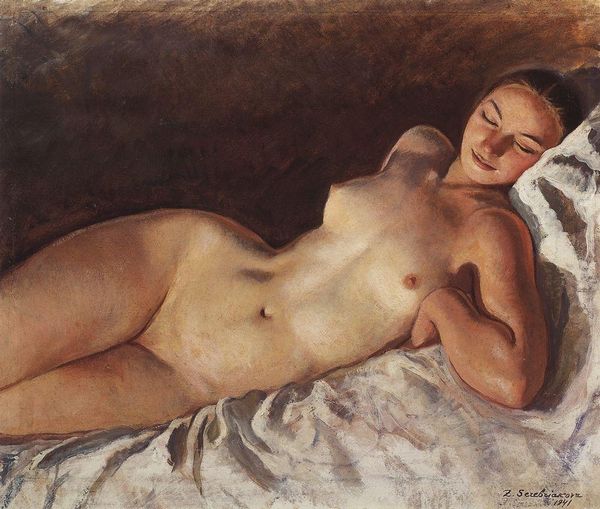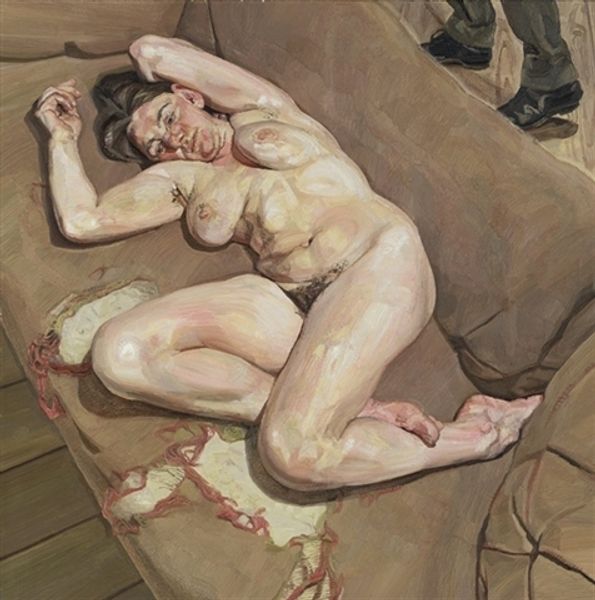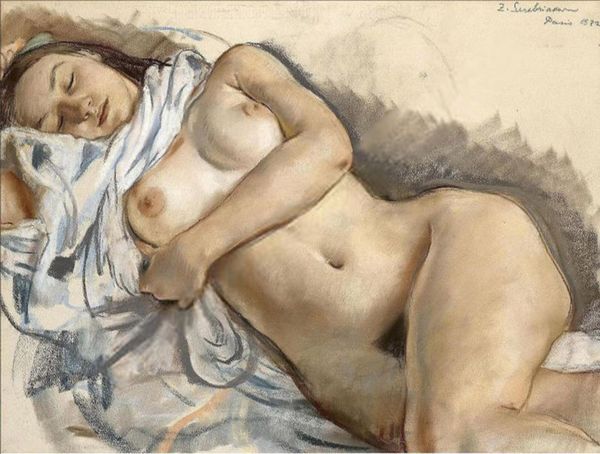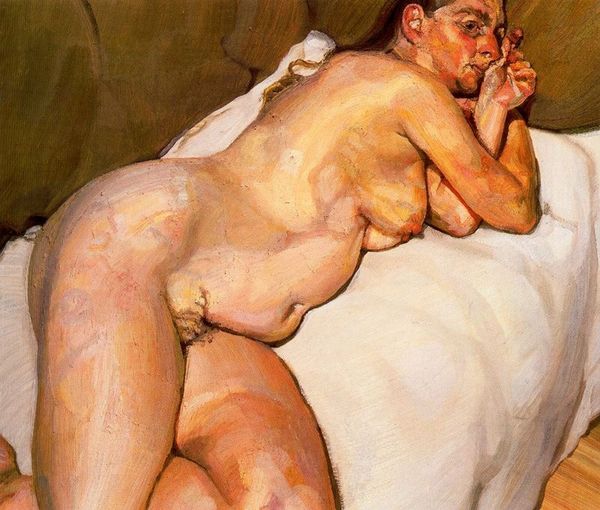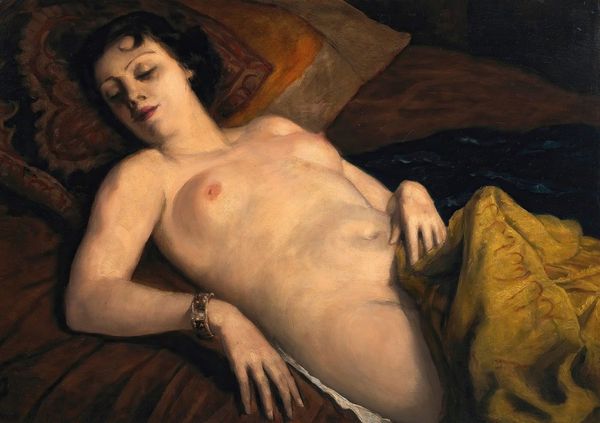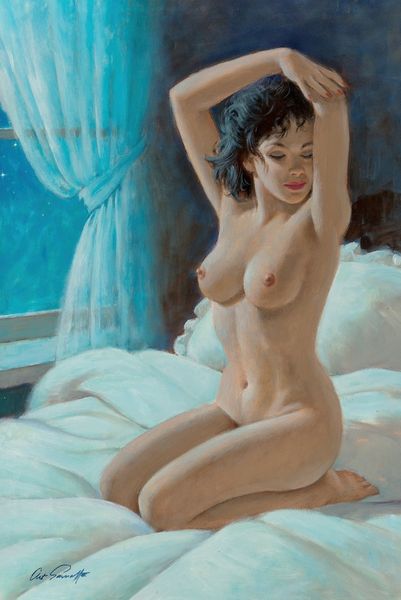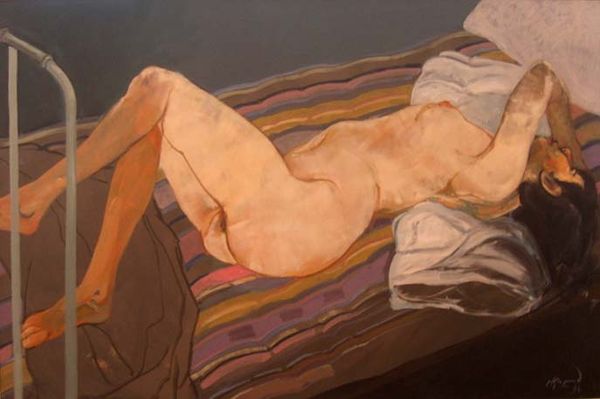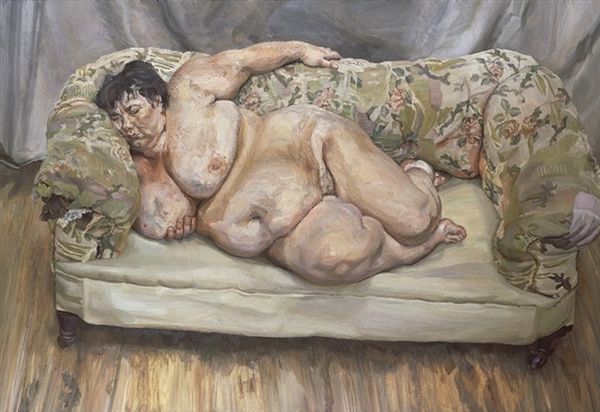
oil-paint
#
portrait
#
oil-paint
#
figuration
#
oil painting
#
female-nude
#
nude
#
realism
Copyright: Lucian Freud,Fair Use
Curator: This is Lucian Freud's 2002 oil painting, "Kate Moss." It's currently held in a private collection. Editor: Raw, I'd say. Intimate, though the palette feels oddly distant. She’s iconic, almost monumental here in repose. Curator: Freud's nudes always seem to strip away the artifice, the performative aspects of being observed. He's after something more truthful, some core of being. And portraying Kate Moss, who embodied constructed images and ideals, there’s a really intriguing tension there. Editor: True, it really does present a marked counterpoint to the image she's meticulously cultivated in public, in tabloids, on runways. It almost feels confrontational. In many ways, this portrait inverts that control – presenting Moss stripped bare, both literally and figuratively. It begs the question, who are we really seeing? Curator: I see echoes of reclining Venuses, sure, but updated for a media-saturated age. There is something classic about it. It is not like that his intention was to give a scandalous touch, he has a psychological insight that, for instance, the realism conveys her vulnerability in spite of her powerful personality. The painting style gives her presence power over all this. Editor: Precisely. It takes the viewer back to the social obsession with celebrity, challenging what we perceive as real. We impose these grand narratives upon figures like Kate Moss, then artists such as Freud counterpoint or reinforce it with these stark, personal perspectives. This piece adds another dimension to an ongoing cultural dialogue. Curator: Right. Even down to the visual vocabulary itself: Freud uses stark lighting, earthy tones and that characteristic impasto that shows his subjects, but his focus here remains that search for authentic being, the symbolism for what’s eternal. Editor: A starkly vulnerable and yet commanding image; certainly a perspective that shifts the way we reflect on modern beauty, societal influence, and artistic truth. Curator: Precisely, now when I look at it, is something more intense about the reflection, perhaps more accurate for what a portrait could convey.
Comments
No comments
Be the first to comment and join the conversation on the ultimate creative platform.
